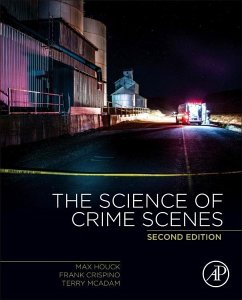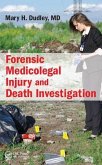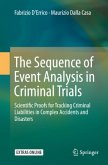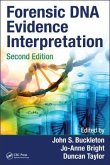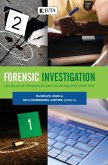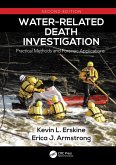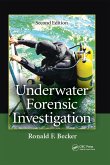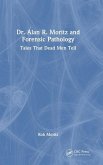The Science of Crime Scenes, Second Edition offers a science-based approach to crime scenes, emphasizing that understanding is more important than simply knowing. Without sacrificing technical details, the book adds significantly to the philosophy and theory of crime scene science. This new edition addresses the science behind the scenes and demonstrates the latest methods and technologies with updated figures and images. It covers the philosophy of the crime scene, the personnel involved at a scene (including the media), the detection of criminal traces and their reconstruction, and special crime scenes, such as mass disasters and terroristic events.
Written by an international trio of authors with decades of crime scene experience, this book is the next generation of crime scene textbooks. This volume will serve both as a textbook for forensic programs, and as an excellent reference for forensic practitioners and crime scene technicians with science backgrounds.
Hinweis: Dieser Artikel kann nur an eine deutsche Lieferadresse ausgeliefert werden.
Written by an international trio of authors with decades of crime scene experience, this book is the next generation of crime scene textbooks. This volume will serve both as a textbook for forensic programs, and as an excellent reference for forensic practitioners and crime scene technicians with science backgrounds.
Hinweis: Dieser Artikel kann nur an eine deutsche Lieferadresse ausgeliefert werden.
"This is a valuable resource text for anyone training crime scene investigators or in being one. It is wonderfully comprehensive in its treatment of the discipline from basic critical logic and management through the intimidating complexities of today's crime scene processing. [...] It would be suggested reading for all laboratory forensic scientists who should want to know what the bits and pieces they are analyzing in the laboratory really mean in the context of crime scene investigation and crime reconstruction." --CSEye
".crime scene investigators will learn that returning to this book after each crime scene will lead to steady improvement of their skills from initial contact with a crime through testimony in court. The Science of Crime Scene is the first successful crime scene investigation manual for the information age." --Karl Williams, Chief Medical Examiners, Office of the Allegheny County Medical Examiner, Pittsburgh, Pennsylvania, USA "The second edition of The Science of Crime Scenes is not only excellent text for forensic scientists and crime scene investigators, but also a great reference book for the detective, prosecutor, and defense attorney. As the end user of the forensic sciences, I must understand what is possible (and not) as well as the mindset that is behind the work. This book provides that and more, and will be a well highlighted occupant of my bookshelf." - James Trainum (Criminal Case Consultant, Homicide Detective (Retired)
".crime scene investigators will learn that returning to this book after each crime scene will lead to steady improvement of their skills from initial contact with a crime through testimony in court. The Science of Crime Scene is the first successful crime scene investigation manual for the information age." --Karl Williams, Chief Medical Examiners, Office of the Allegheny County Medical Examiner, Pittsburgh, Pennsylvania, USA "The second edition of The Science of Crime Scenes is not only excellent text for forensic scientists and crime scene investigators, but also a great reference book for the detective, prosecutor, and defense attorney. As the end user of the forensic sciences, I must understand what is possible (and not) as well as the mindset that is behind the work. This book provides that and more, and will be a well highlighted occupant of my bookshelf." - James Trainum (Criminal Case Consultant, Homicide Detective (Retired)

